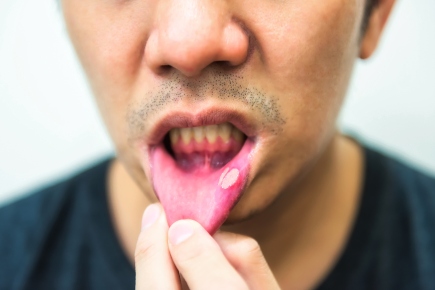Understanding Inflammatory Bowel Diseases (IBD)
Autoimmune Series – A group of autoimmune diseases known as Inflammatory Bowel Diseases (IBD) causes chronic inflammation in the gastrointestinal (GI) tract. The two primary diseases in this group are Crohn’s Disease and Ulcerative Colitis. Over time, the symptoms of chronic inflammation damage the GI tract, leading to discomfort and painful symptoms for those affected.

Diagnosis and Differences Between Crohn’s Disease and Ulcerative Colitis
As your Hadlock family dentist near the Port Hadlock-Irondale, WA area, we understand the importance of accurate diagnosis. Both Crohn’s Disease and Ulcerative Colitis share many similarities, but a physician must diagnose them. Crohn’s Disease can occur anywhere along the GI tract, from the mouth to the anus, with the small intestine being the most commonly affected area.
In Crohn’s Disease, affected areas appear as patches of irritation next to healthy tissue, and inflammation may penetrate multiple wall layers within the intestine. In contrast, Ulcerative Colitis is localized to the colon and rectum. Unlike the patchy areas in Crohn’s, the damaged regions in Ulcerative Colitis present in a continuous pattern, typically extending from the rectum to the colon. Additionally, Colitis affects only the innermost wall of the colon, rather than multiple layers.
Causes and Symptoms of IBD
Pinpointing the exact causes of IBD remains challenging, similar to many autoimmune diseases. Research suggests that environmental and genetic factors likely contribute to its onset. These factors trigger an immune response that attacks the cells in the GI tract. Both Crohn’s Disease and Ulcerative Colitis share similar symptoms, making misdiagnosis common. Autoimmune Series.
Common Symptoms of IBD Include:
- Persistent diarrhea
- Abdominal pain
- Rectal bleeding/bloody stools
- Weight loss
- Fatigue
It is crucial to differentiate IBD from Irritable Bowel Syndrome (IBS) and Celiac disease. Obtaining an accurate diagnosis is vital for effective treatment. Due to the overlap in symptoms, consulting a physician or IBD specialist is essential.
Oral Health Implications of IBD
Individuals with IBD may experience various oral health issues, including:
- Xerostomia (Dry Mouth): Insufficient saliva production can lead to a dry mouth, increasing the risk of dental decay.
- Aphthous Ulcers: Also known as canker sores, these painful lesions can occur frequently in individuals with IBD, complicating oral care.
- Mucosal Tags: Similar to skin tags, these may develop as a result of Crohn’s Disease and can appear on the inner cheek, often visible to your dentist or hygienist.
- Gingivitis: This reversible form of periodontal disease responds well to good home care and regular professional hygiene visits.
If you are experiencing any of these oral symptoms, we can help! Our doctor and hygienist will create a tailored treatment plan to suit your needs. For instance, if you frequently suffer from aphthous ulcers, we may prescribe a steroid cream to reduce their duration and frequency.
If xerostomia is an issue, we will discuss options to balance pH levels and decrease your risk of decay. Maintaining good home care and scheduling regular hygiene visits will significantly help alleviate any oral symptoms linked to your immune response. If you would like to discuss how your IBD may be impacting your oral health, please mention it during your next visit!
In Conclusion
Crohn’s Disease most commonly affects the end of the small intestine and the beginning of the colon. Remember to stay informed and proactive about your health. Don’t forget to visit our Facebook page for more updates and information!
Sources:
CDC – https://www.cdc.gov/ibd/what-is-IBD.htm
Today’s RDH – https://www.todaysrdh.com/crohns-disease-and-its-effects-on-the-oral-cavity/
